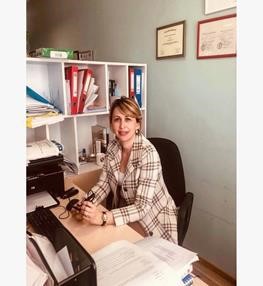
Elza Nikoleishvili
The University of Georgia, Georgia
Title: Academia (university study programs) involvement in pharmacovigilance in Georgia
Biography
Biography: Elza Nikoleishvili
Abstract
Nowadays, when we are talking about global education and global
health, Academia must be in the forefront for socio-economic,
cultural and healthcare developing of the country. We have several biggest global challenges among them most important is improving of healthcare. Serious challenges to global health remain ranging from dealing with pandemics to the rise of the cost of care of noncommunicable diseases. For improving healthcare system in developing and developed countries we need professionals with deep theoretical knowledge, practical and clinical skills based on Ethic and Moral Principles and Codes. We have very big positive results of medication of many serious acute and chronic diseases, but also adverse drug reactions (ADRs) cause serious health problems. National Center for Health Statistics USA indicate that ADRs account for approximately 5 % of all acute hospitalization. Among medical errors medication errors are the 5 cause of death of patients. According to bulletin of the WHO 2018 in high-income countries, clinical pharmacy services have been shown to improve quality use of medicines and reduce drug-related problems, hospital readmissions and healthcare expenditures. Meaningful role of clinical pharmacy is to provide rational pharmacotherapy, which includes: effectiveness, safety, suitability
and cost of medication. That is reason why we have seen very deep link between Clinical Pharmacy and Pharmacovigilance. Pharmacovigilance is defined as the science and activities relating to the detection, assessment, understanding and prevention of adverse effects or any other drug-related problem. In 2019 Uppsala Monitoring Centre united 136 full members and 29 associate members. In 2018 Georgia has become a member of Uppsala Monitoring Centre. It gives us more possibility to participate and be more active in this direction, to involve our healthcare professionals and patients as well. Pharmacovigilance plays an important role in the rational use of medicines by providing information about adverse drug reactions (ADRs) in the general population. In Georgia Clinical Pharmacy, Parmacovigilance and pharmacotherapy education faces own/specific challenges. As a representative of academia, we understand the importance of pharmacovigilance in the context of Pharmacotherapy. Clinical
Pharmacology, Toxicology and Pharmacotherapy curricula should give a higher priority to the study of the safety of medicines, but the results of the study conducted in Georgia “Barriers of development of Clinical Pharmacy among the healthcare professionals in Georgia” identified lack of: space, enough personnel in pharmacy to handle routine technical tasks, time, need for too much effort, and need for payment for services, clinically qualified pharmacists, poor pharmaceutical literacy among patients, as well as aggressive and inaccurate marketing and advertising, lack of drug information. In 2016 Pharmacy Department created new Master program in Pharmacy and got National accreditation.Our curriculum was first in Georgian academic area in which we included pharmacovigilance and pharmacoepidemiology as independent subjects. As a professionals of medicine and pharmacy spheres we are aware of need for pharmacovigilance in Georgia. It is very important that competency-based educational models are becoming more dominant. In the context of pharmacotherapy competencies in pharmacovigilance are timely recognition, prevention and management of ADRs. From 2019 we begun to use student oriented teaching methods. In order to strengthen competencies we have begun to use task-based learning tools in subjects: clinical Pharmacy, pharmacotherapy and Pharmaceutical care Practice. The School of Health Sciences of the University of Georgia, through study programs and activities, which include seminars, workshops and public lectures, helps to raise awareness about the importance of safe medication for healthcare specialists and patients in Georgia.
